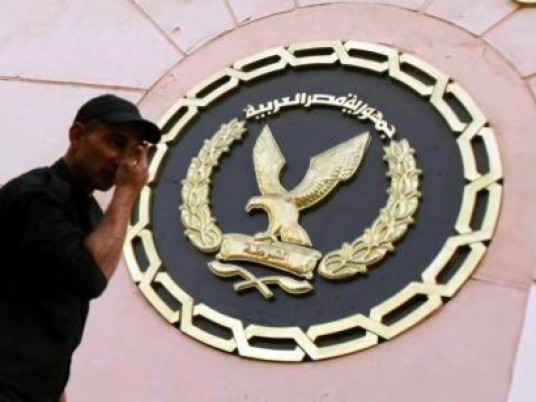Three days after President Hosni Mubarak stepped down, Egypt’s much-hated police force was redeployed after nearly three weeks of complete absence.
But when the cops returned, something seemed different. All of a sudden they were quieter, less intrusive and more polite. But, it seems, also less effective.
“We received strict orders to be nicer to civilians,” says Detective Ali Gaber.
Civilians were happy. On the surface it seemed like a step towards taming one of the previous regime’s most hated institutions, an important revolutionary demand.
Four months later – and despite supposedly normal police presence – the crime rate is increasing, violence on the streets has become more common, and newspapers report gunfights on a near-daily basis.
“They are using weapons that we never saw used before this year in Egypt,” says Ramadan al-Beialy, the manager of a private security firm in Egypt.
The new attitude of the police now seems less than merely amiable. While they lackadaisically smile at civilians, the “present” police are just not working hard enough at keeping Cairo secure.
Recently sectarian violence reached a fever-pitch, with clashes in Imbaba, Ain Shams and other areas around Cairo, that at times involve Molotov cocktails and gunfire.
Convicts have managed five jail-break attempts over the past two weeks, three of those successful.
Numerous kidnappings for ransom have occurred, including the kidnapping last month of former president Anwar Sadat’s granddaughter. In that case, police acted quickly to resolve the situation, but generally, they have behaved with a passivity unbefitting of their profession.
Even police officers admit that their presence is still largely nominal.
“We are afraid to use certain tactics – forceful ones. Police are out on the streets but not fully functioning,” says Major Tarek Sirry.
Sirry explains that in one of the jail breaks in Shubra, police deliberately took a step back so as to not open fire in fear of legal retribution, despite the fact the Prime Minister Essam Sharaf issued a decree confirming their right to use force when necessary.
This attitude has been especially detrimental in areas that historically have more crime, such as Shubra’s slums, which, according to numerous security and local sources, have remained out of police control.
Police officers complain that many ex-convicts and thugs previously hired by allies of the formerly ruling National Democratic Party engage in these crimes, and they seek refuge in shantytowns and ghettos that police have limited access to.
“Most police are unwilling to engage in these areas,” says Major Walid Hamdy of Cairo Central Security.
“In the past, lower-ranking officers played an intermediary role between their superiors and those viewed as 'half-citizens' (poorer Egyptians) by upper classes,” Mohamed Naeem, editor of El-Bosla, a local analytical news publication, wrote in an editorial in the Arabic edition of Al-Masry Al-Youm.
The Coalition for Police Officers, a reform movement within the police force, held a press conference on Saturday acknowledging that the police force has been negligent with regards to public security.
“We provided the Interior Ministry with a comprehensive security strategy put together by many experts and experienced police officers to get the police back in full force and penetrating problematic areas within two to three weeks,” said Ahmed Ragab, the coalition’s spokesperson.
Ragab added that interim Interior Minister Mansour al-Essawy promised to study the proposal and put into action a comprehensive plan to restore general security as soon as possible.
The Interior Ministry is reportedly days away from implementing a plan to gradually restore order through new police methods.
But the problem may run deeper. Police officers were seen as extensions of the repressive government. With that government gone, people’s attitudes towards the police have changed.
“The government is no longer a government. We generally considered them oppressive. Criminals specifically feel like the situation of the country allows them to go out and steal anything they can get their hands on,” says Adel Ragab, a driver from Ezbit Kheir Allah, a shantytown in old Cairo, whose brother is currently in jail for theft.
Ezbit Khair Allah is one of those places that has always been marked as problematic. These days, however, its problems are spilling out to areas where it normally would not have, and weapons are being used that weren’t used before.
Ragab says that the established role of the police as representatives of the state is one that would keep many in his area from supporting any new police presence until they feel they can trust them.
Hamdy, the police officer, thinks that this negative perception of the police leads to a concept of retribution against the law and communal reprisals for the arrest of criminals.
He says criminals believe they can rely on gathering friends and family to protect them against arrest, and that is one reason some feel they are above the law and do not need to worry about arrest.
“Unfortunately, one of the bad side effects of the revolution is that people in informal areas now feel that it is okay to attack police stations for any reason, and if the police defend it using force, we face trial,” says Hamdy.
Hamdy contends that when facing an entire neighborhood looking to attack a police station for imprisoning a local – even if caught red handed – police tend to release the prisoner rather than risk mass confrontation. He thinks that in informal areas criminals exploit their neighbors' readiness to defend them.
Shantytown residents mostly expressed an ideological opposition to crime, but many agreed on the reasons it was on the rise.
“Ignorance is the number one factor behind all of this. Not everyone is a criminal by nature, but people see how much of their money was stolen by the government, and they’re thinking, ‘if I don’t get my money back from them, then I’ll get it from someplace else,’” said Ahmed Abbas, a welder from the Stabl Antar area.
Residents from shantytowns such as Mansheyat Nasser and the poorer parts of Manyal, however, seem to be torn between being happy that the repressive police are no longer in power and being upset that the criminals among them operate with more freedom.
“I drive around like it’s a dream,” says Ayman, who transports garbage to Mansheyat Nasser. “I had to pay daily bribes every time I drove out. Now there’s no police to take bribes and at the same time, the drug dealers and thieves from our areas act a lot more freely, giving us here a bad name.”
Many others from these same areas complain that drug dealers and gun smugglers act more brazenly than before. The narrow alleys and intricate communication systems criminals had in place to protect each other, compounded with police passivity, have amplified the impenetrability of some of these areas. This has made some parts hotspots for drug-dealing and organized crime.
Hamdy believes that the real danger now is if some criminals try to use the downtrodden state of the police to expand these networks and create similar situations in other parts of Cairo.
”The military police shoulder the majority of the responsibility. It is a large load that they cannot handle on their own,” Beialy says. He added that private security firms are not allowed to carry firearms.
The current situation of lawlessness lies in stark contrast to the time of the uprising, when Beialy says his company experienced more security than ever before – even in the absence of the police. The difference, he says, is that many of the youth from the informal areas who are engaged in crime now were involved in the popular committees protecting their neighborhoods during the revolution.
“They need to be occupied,” he says.




